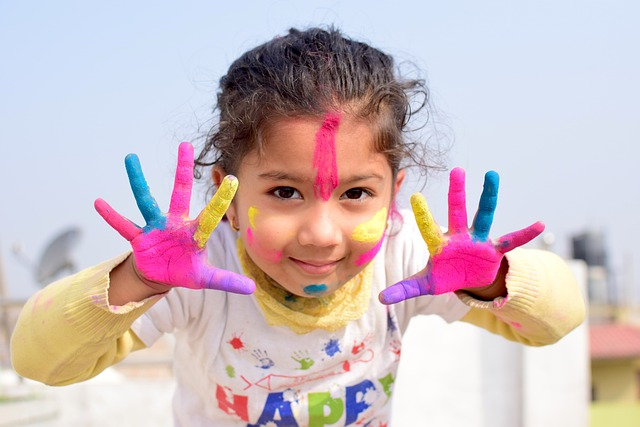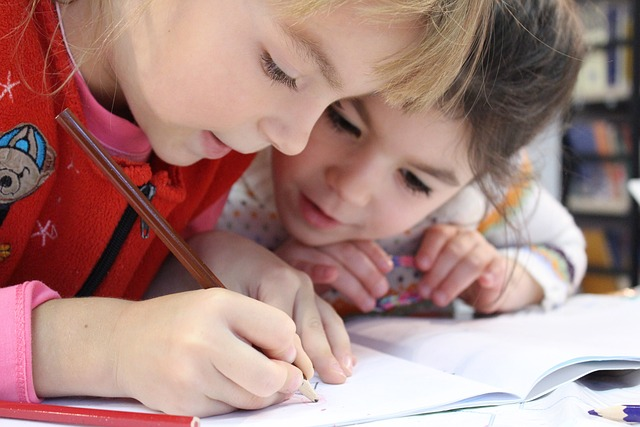Introduction To The Approach – What Is It And How Does It Help My Child?
Most pediatric counseling experts noted that ADHD causes a child’s impulsiveness or hyperactivity.

Let’s discuss the treatment in this article more and understand the truth of this approach.
Pediatrics Counseling professionals explain that counseling of pediatric type impacts behavior and feelings or emotional health outbursts and difficulty coping. Pediatric diagnosis of this condition is common in kids and adolescents, but there are also cases where adults and teens show ADHD symptoms. More than millions of pediatrics between ages 4 and 17 are diagnosed; ever since then, that number has continued to grow exponentially.
Could ADHD Be Genetic?
This type of mental illness, such as depression, could be severe if left with less attention and no pediatric help. Therefore, early detection is crucial for pediatric counseling. It is better to manage the condition at an early stage. According to Thomas E. Brown, Ph.D., “It’s tough for them to keep themselves working on finishing their assignments and on regulating their sleep and alertness.
According to studies, ADHD, or attention deficit hyperactivity disorder,
is a complicated set of problems with the brain’s self-management system and executive functions. Some stimulant medications can be used to control its warning signs and mental health concerns. However, the most effective and personal approach to handling ADHD is through this method.
The Common Symptoms Of Pediatric ADHD Counseling
Most of the symptoms of pediatric ADHD, according to a mental health professional and caregivers, are trouble listening, hyper behavior, easy distraction, procrastination, difficulty sitting still for a period, and problems in academic activities. Anyone can exhibit symptoms of mental health conditions; the only difference is that those with childhood ADHD tend to become more severe.

John M. Grohol, Psy.D. says, “Of course, only a trained mental health professional — such as a psychologist or psychiatrist — can make a qualified ADHD diagnosis.”
Child Counseling For Pediatric ADHD & Mental Health
Services for child counseling provide an assisting environment for pediatrics with ADHD. They also offer programs that can control the symptoms manifested by the condition. Support from teachers, parents, mental health providers, and counseling experts is also needed to battle its symptoms. Through a series of counseling sessions, the counselors and parents of the child will have a chance to know more about the required well-drawn program and medications for the mental health issues and needs of children and teens.
“Research shows that good therapists produce good results for most problems if they feel competent to handle them and have enough experience to carry out treatment,” Michael Ungar, Ph.D., wrote. The Kind Of Intervention One of the techniques used by pediatric counseling experts is behavioral therapy like cognitive behavioral therapy or CBT.
Counseling for Mental Health Conditions
These services support mental health treatment resources integral to managing attention deficit hyperactivity disorder symptoms, including applied behavior analysis. They use it to identify which of the different psychological approaches is effective. It allows pediatric counselors to assist the parents in understanding their children’s problem behaviors and mental health conditions when dealing with challenging life struggles, mood disorders, and social interactions.
Additional points to consider are listed below to support individualized treatment plans for parent-child interaction therapy, help the whole family cope, and address behavioral concerns and issues.
It is possible that the child couldn’t understand the command the parents gave because of the slight misinterpretation that triggers pediatric ADHD symptoms. Therefore, pediatric counselors must convince the parents to provide clear and easy instructions, especially during play therapy interest. Group therapy is another option to help deal with autism spectrum disorder and improve behavioral health.
Criticism can be hard for a young child, so avoid criticizing them often. A pediatric counselor could explain to parents in family counseling that they must balance praising a child and giving negative comments to avoid causing stress, anxiety disorder, and bipolar disorder in some cases.

Mental Health Treatment For ADHD
Part of a mental health treatment plan is offering a small reward could boost pediatric focus and morale. It is necessary to organize a reward system every time a child does something good or if he follows an instruction thoroughly. However, in parent-child interaction therapy, parents should stay consistent with providing a reward.
Tweaking disciplinary action is very important. It develops a sense of responsibility from a child’s perspective. It could help your child understand right and wrong as society views. Therefore, parents should understand the balance of teaching proper manners for specific behavioral issues for better social interaction skills.
With pediatric counseling treatment, support from the parents, and aid from pediatric counselors, symptoms manifested by pediatric ADHD are manageable. We need to remember that children with ADHD can still become properly functioning individuals in society.

FAQs
What Is The Description Of This Type Of Therapy?
The description of child therapy varies depending on the approach used. Generally, it involves a trained mental health care professional working with a child to address emotional, behavioral, or psychological issues. Child therapy can be tailored to specific concerns and may incorporate various techniques, such as play therapy, talk therapy, or art therapy.
How Will You Know That Your Child Needs Therapy?
Recognizing that your child may need therapy can involve observing signs like persistent behavioral problems, mood changes, social difficulties, academic struggles, or reactions to traumatic events. Consulting with a pediatrician, school counselor, or mental health expert can help determine appropriate therapy.
What Happens In A Particular Child Therapy Session?
In a child therapy session, the therapist typically engages the child in age-appropriate activities or conversations to address their concerns. The session aims to create a safe and supportive environment where the child can express their thoughts and emotions.
What Are Indications For Counseling A Child?
Indications for counseling a child include factors such as emotional distress, trauma, family issues, home issues, bullying, academic challenges, anxiety, depression, or behavioral problems that significantly impact the child’s well-being and daily life.
What Is A Child Therapist Called?
A child therapist is often referred to as a child psychologist, child counselor, child therapist, or child and adolescent mental health professional, depending on their qualifications and training.
How Long Does It Take To Become A Counselor?
The time it takes to become a counselor can vary depending on the level of education and specific licensure requirements. It typically involves earning a bachelor’s degree (4 years) and then a master’s degree in counseling or a related field (2-3 years). Additional time may be needed for supervised experience and licensure.
Are Counseling And Therapy Different?
The terms “counseling” and “therapy” are often used interchangeably, but they can have subtle differences in focus and approach. Counseling addresses specific issues or challenges, while therapy may be more comprehensive and delve deeper into emotional and psychological issues.
What Is A Child Development Counselor?
A child development counselor is a professional who specializes in understanding and supporting the cognitive, emotional, and social development of children. They are known for working with children and their families to promote healthy development and address developmental concerns.
What Are The Signs Of A Troubled Child?
Signs of a troubled child may include drastic changes in behavior, withdrawal from social activities, academic decline, mood swings, aggression, excessive fears or phobias, and persistent physical complaints like headaches or stomachaches.
When Should A Child See A Psychologist?
A child should see a psychologist when they exhibit ongoing emotional or behavioral issues that significantly impact their well-being or functioning. Parents, teachers, or healthcare professionals may recommend seeing a psychologist to assess and address these concerns.
What Is The Purpose Of Child Counseling?
Child counseling provides a supportive and therapeutic environment in which children can explore their emotions, develop coping skills, and work through challenges. It aims to improve their mental health, emotional well-being, and overall functioning.
Who Can Help With Child Behavior Problems?
Professionals who can help with child behavior problems include child psychologists, counselors, therapists, pediatricians, and school counselors. They can assess the child’s needs and recommend appropriate interventions.
What Common Issues Can Be Found In Child Counseling?
Common issues addressed in child counseling include anxiety, depression, behavior problems, grief and loss, trauma, family conflict, academic difficulties, social skills development, and adjustment to life changes.
What Does Anxiety Disorder Look Like In A Child?
Anxiety disorder in a child can manifest as excessive worry, fearfulness, restlessness, avoidance of certain situations, physical symptoms like headaches or stomachaches, sleep disturbances, and difficulty concentrating. Symptoms may vary based on the specific type of anxiety disorder.
What Causes Mental Illness In A Child?
A combination of genetic, environmental, and biological factors can cause mental illness in a child. These may include a family history of mental health issues, exposure to trauma or stress, brain chemistry imbalances, or neurodevelopmental factors. Early intervention and support are essential for addressing mental health concerns in children.
What Does Anxiety Disorder Look Like In A Child?
Anxiety disorder in a child can manifest as excessive worry, fearfulness, restlessness, avoidance of certain situations, physical symptoms like headaches or stomachaches, sleep disturbances, and difficulty concentrating. Symptoms may vary based on the specific type of anxiety disorder, including generalized anxiety disorder, social anxiety disorder, separation anxiety disorder, or phobias.
What Causes Mental Illness In A Child?
Genetic, environmental, and biological factors can cause mental illness in a child. These may include a family history of mental health issues, exposure to trauma or stress, brain chemistry imbalances, neurodevelopmental factors, or adverse childhood experiences. Early intervention and support are essential for addressing mental health concerns in children.
